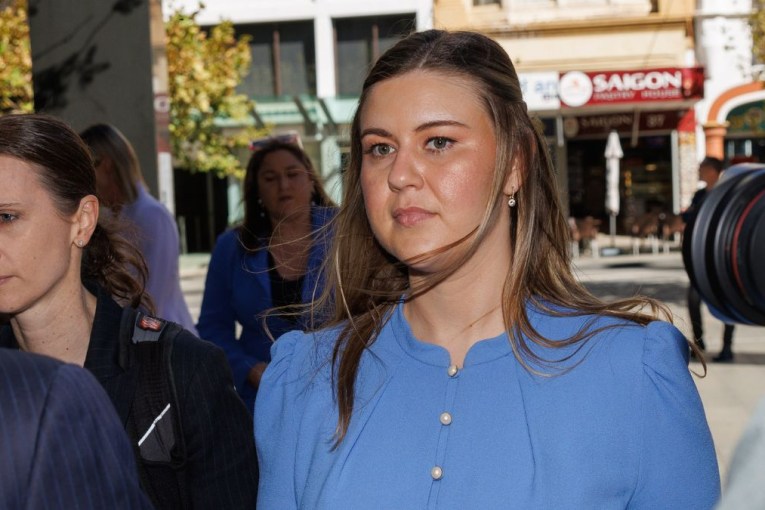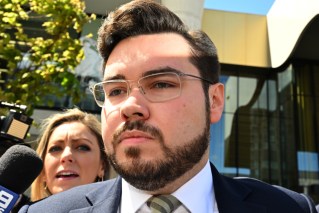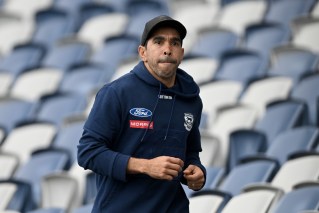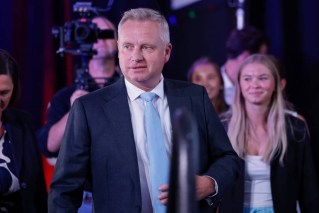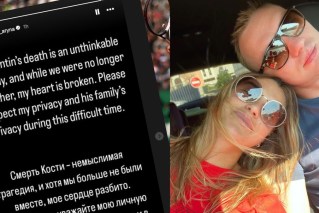The crucial role universities play in better lives for people with disability

Disability commissioner Ben Gauntlett at the Bledisloe Cup rugby match in Perth in August. Photo: Facebook/Ben Gauntlett
When Dr Ben Gauntlett began his studying at the University of Western Australia two decades ago, he’d only recently begun adjusting to a significant life event.
“I had a spinal cord injury when I was 16 playing rugby union,” Dr Gauntlett says.
“[University] was fabulous because it enabled me to both be part of the community while adjusting to my life circumstances.”
Until the high school accident that changed his life, Dr Gauntlett was apparently no scholar. In 2007, the New York University law magazine described him as a “six-foot-tall Aussie [who] was a jock all the way, playing cricket, rugby and athletics”.
In 1995, Dr Gauntlett’s sporting days came to an abrupt end when he broke his neck during a rugby match. The resultant spinal cord injury left him a quadriplegic, with limited movement in his arms, hands and upper body.
He admits to dark thoughts in the period immediately after his accident.
“You think you’re badly off, then you see someone on a ventilator, or a guy who gets just one visitor a year,” he told the magazine. “You realise how lucky you truly are.”
Dr Gauntlett started at the University of WA studying medicine, but soon switched to law. Since then, he’s gone on to study and work at five universities in Australia, Britain and the US.
He has been a Rhodes scholar, a Hauser scholar (for his time at NYU) and – most recently – appointed to a five-year term as Australia’s disability discrimination commissioner.
Now 40, Dr Gauntlett is drawing on his experience in academia for his new role.
“Throughout that time [on campus], I suspect I normalised this disability for a number of my colleagues, friends, people who I just came into contact with,” he says.
“That normalisation lasts for generations.”
Having recently returned from Geneva, where he presented to the UN, Dr Gauntlett says university inclusion and diversity is an area of personal interest.
He has started visiting universities to encourage a more thoughtful approach. And, while he says the path to education for people with disability is far from barrier-free, he’s encouraged by the work being done.
“We’re on a process of improvement – [but] by no means can we say the job is done. But there is a commonality across all universities that they have the ability to make a lasting impression on communities, and when they see that, they can often implement wonderful ideas,” he says.
“It’s not about compliance, but really seeing themselves as drivers of social change … and that includes understanding that they can change the mindset of generations. What we want is a mindset that normalises diversity and understands its benefits.”
Dr Gauntlett says the barriers people with disability face aren’t always obvious – although he jokes that he doesn’t miss the cobblestones of Oxford, where he was a Rhodes scholar in 2003.
“The barriers people face are often more foundational,” he says.
“There’s a clear need for students to be aware of the opportunities to attend university and be supported to get to that position.”
“Universities need to demonstrate their commitment to inclusion and the best way to do that is to be extremely mindful of the messages you seek to convey, and understanding that there is a diversity of people you are looking to appeal to.”
Dr Gauntlett is urging universities to consider what further role they might play to enhance diversity and inclusion in Australia.
“Universities can accommodate a diversity of backgrounds quite easily because they have the economies of scale and scope to do so,” he says.
“There’s a whole raft of roles that exist within a university, and by being very open about inclusion we can ensure people, and particularly young people, are exposed to the benefits of diversity.”
He says there are many ways universities can work towards better inclusion. For instance, by providing more opportunities for people from all backgrounds, offering mentorships and ensuring inclusion plans are co-designed by people with disability.
But he says, to really make the work meaningful, universities must collect data – and that data must be reported to the university executive. Currently, there is no such data collection and reporting.
“You need to be quite objective and transparent about what is occurring, not just within the student cohort, but the entire university footprint, where they operate, across what roles people have,” he says.
“Whilst we have policy documents that reflect very laudable aims, we now need to implement those aims in a transparent and verifiable manner.”
